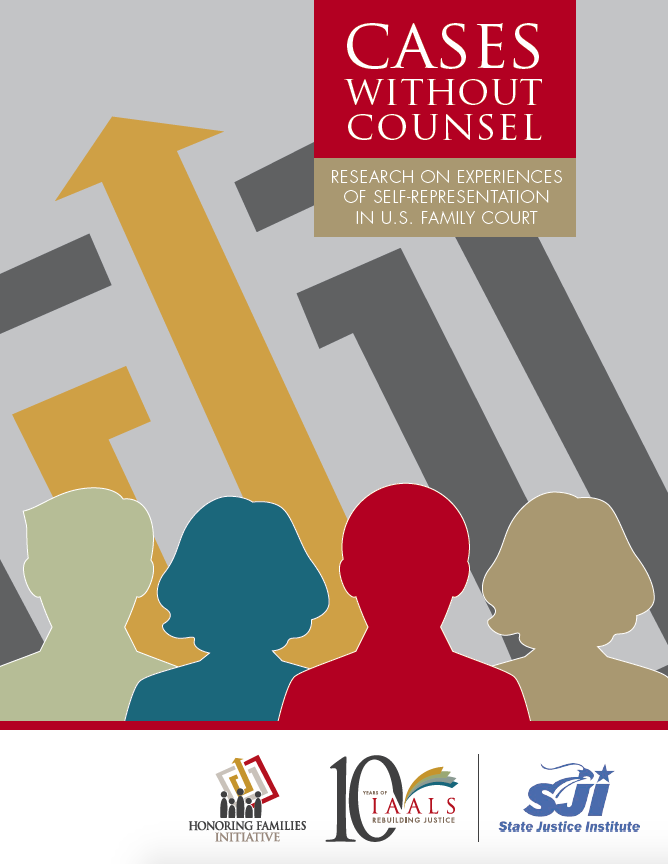Cases Without Counsel: Research on Experiences of Self-Representation in U.S. Family Court
Many litigants navigating state family courts today are without attorney representation—in some courts, these numbers are increasing. Justice system stakeholders have made significant efforts in the last decade to develop self-helpinformation, resources, and programs for those without representation. All too often, however, litigants are left out ofconversations on how to improve the process for others like them.
IAALS undertook a qualitative empirical research study designed to explore the issue of self-representation from the litigants’ perspective. Our Cases Without Counsel project gathered detailed narratives directly from family court self-represented litigants and those who engage with litigants in the court through one-on-one interviews. The recommendations based on our research (detailed in the companion Recommendations report) include materials and resources for those interested in learning more or implementing change in their jurisdiction.
The findings in this Research report focus on major themes revealed through the study. In their own words, self-represented litigants and court professionals discuss the challenges involved in self-representation from their perspectives, including:
- Factors motivating and influencing the decision to self-represent;
- Experiences of navigating the process; and
- Interactions with others, challenges encountered, and the role of emotion in self-representation.




